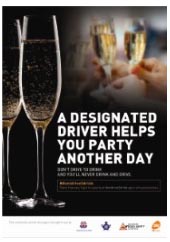The legal system of Singapore is based on the English common law system. Majoyr areas are administrative law, contract law, equity and trust law, property law and tort law: these are mainly judge-made. Certain aspects have now been modified into some extent by statutes. A statute is a formal written enactment of a legislative authority that governs a state, city or country. Typically, statutes command or prohibit something, or declare policy.

Drink driving propaganda

The Road traffic act is under chapter 276. The usual outcome for reckless or unsafe driving is dictated under section 65.
SECTION 65: DRIVING WITHOUT DUE CARE OR CONSIDERATION

If any person drives a motor vehicle on a road —
(a) without due care and attention; or
(b) without reasonable consideration for other persons using the road,
he shall be guilty of an offence and shall be liable on conviction to a fine not exceeding $1,000 or to imprisonment for a term not exceeding 6 months or to both and, in the case of a second or subsequent conviction, to a fine not exceeding $2,000 or to imprisonment for a term not exceeding 12 months or to both.
Most of the drink drivers, who have in one way or another caused some damages to public items etc are liable to be charged for this section too. This is also the most common section to be used for the Road traffic act.
SECTION 67: Driving while under influence of drink or drugs
67.
—(1) Any person who, when driving or attempting to drive a motor vehicle on a road or other public place —
(a) is unfit to drive in that he is under the influence of drink or of a drug or an intoxicating substance to such an extent as to be incapable of having proper control of such vehicle; or
(b) has so much alcohol in his body that the proportion of it in his breath or blood exceeds the prescribed limit,
shall be guilty of an offence and shall be liable on conviction to a fine of not less than $1,000 and not more than $5,000 or to imprisonment for a term not exceeding 6 months and, in the case of a second or subsequent conviction, to a fine of not less than $3,000 and not more than $10,000 and to imprisonment for a term not exceeding 12 months.
[11/96]
(2) A person convicted of an offence under this section shall, unless the court for special reasons thinks fit to order otherwise and without prejudice to the power of the court to order a longer period of disqualification, be disqualified from holding or obtaining a driving licence for a period of not less than 12 months from the date of his conviction or, where he is sentenced to imprisonment, from the date of his release from prison.
[7/90]
(3) Any police officer may arrest without warrant any person committing an offence under this section.
From the point (3) under section 67, we can clearly see that drink driving and even consumption of drug ( prescribed or non prescribed) which influence your ability to drive can cause dire outcomes and the Police officer can ARREST without any WARRANT, would mean that you can be apprehended first and there after be cleared of the name.
USUAL CASES FOR DRINK DRIVING
By the time you are unconscious, there is a high chance that you will commit section 65 ( some sort of zig zag riding or driving ) or even hit someone. Once suspected of committing drink driving, the police officer is able to arrest you for a breathalyser or blood test without any warrant. With 2 charges under your belt, it is already quite a sum to pay for your fines. If you are engaging a lawyer to fight your case, then the cost can even shoot up. Although there is almost no chance for you to be acquitted from the punishment ( UNLESS you really really did not drink and drive) you still have to pay for the lawyer fees for this case. Most lawyers can tell you straight up that they are unable to keep you out of the punishment, they can however help to mitigate it.
My take is, if you have a complicated and unclear case, it is better to hire the lawyer, as the prosecutor might be so “powerful” to put your case for a custodial ( jail term ) sentence.



Leave a Reply